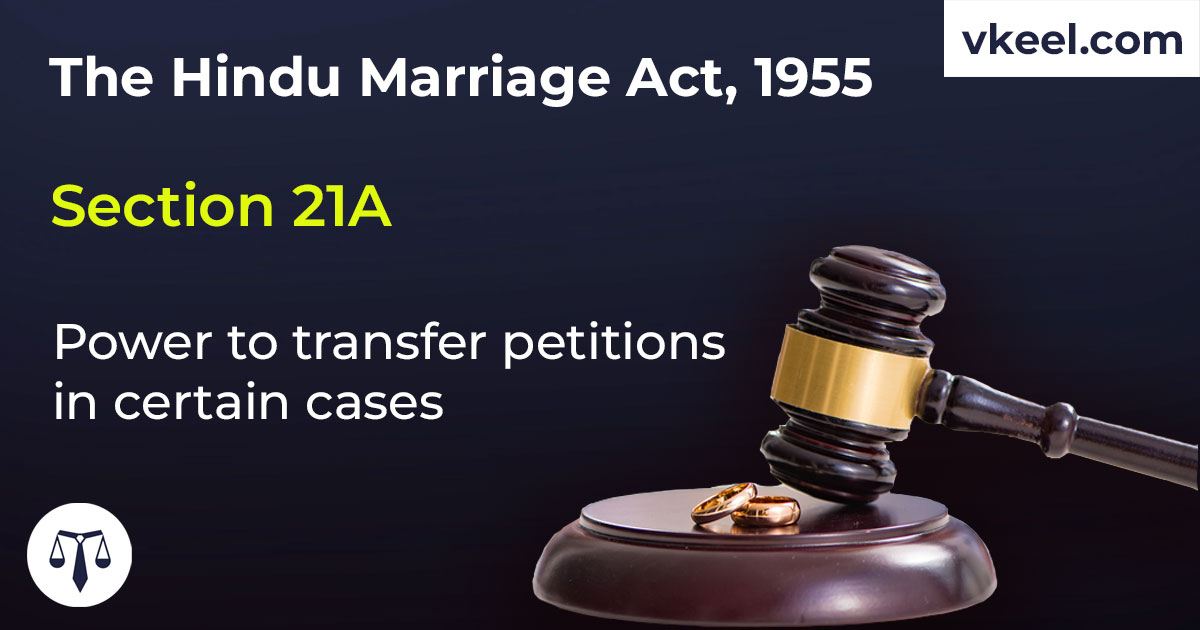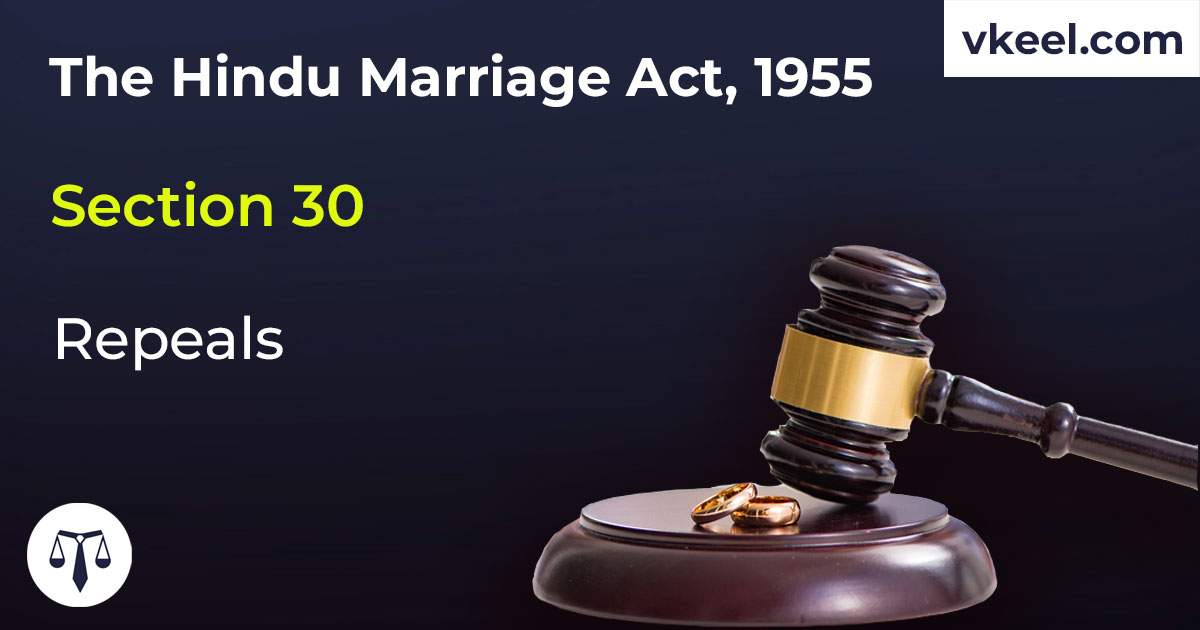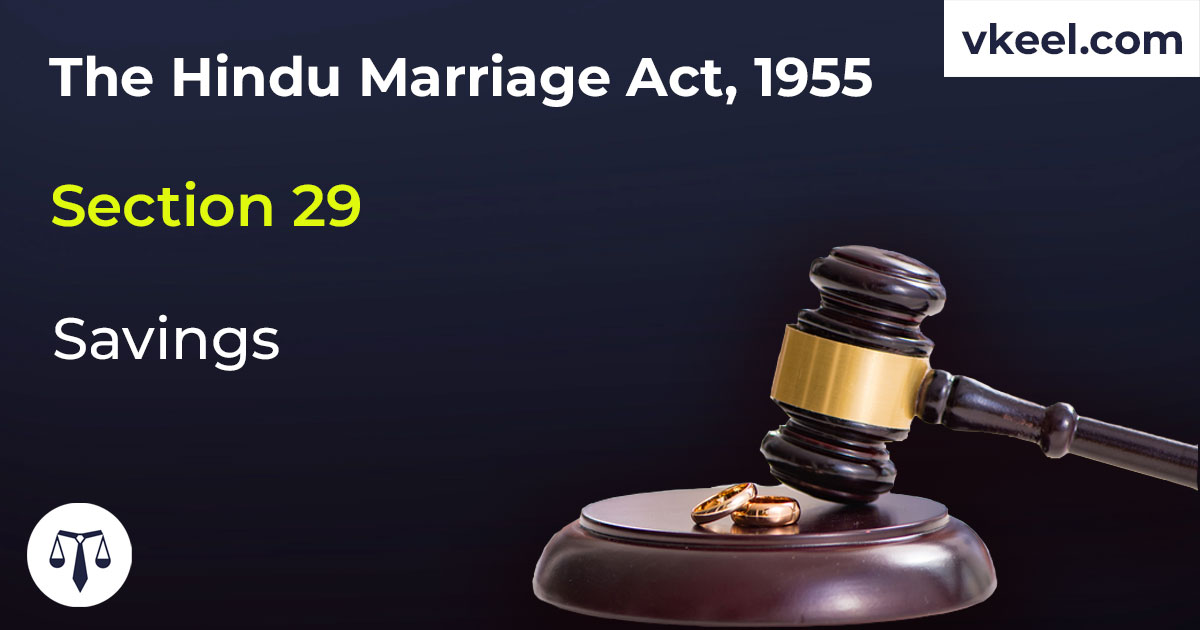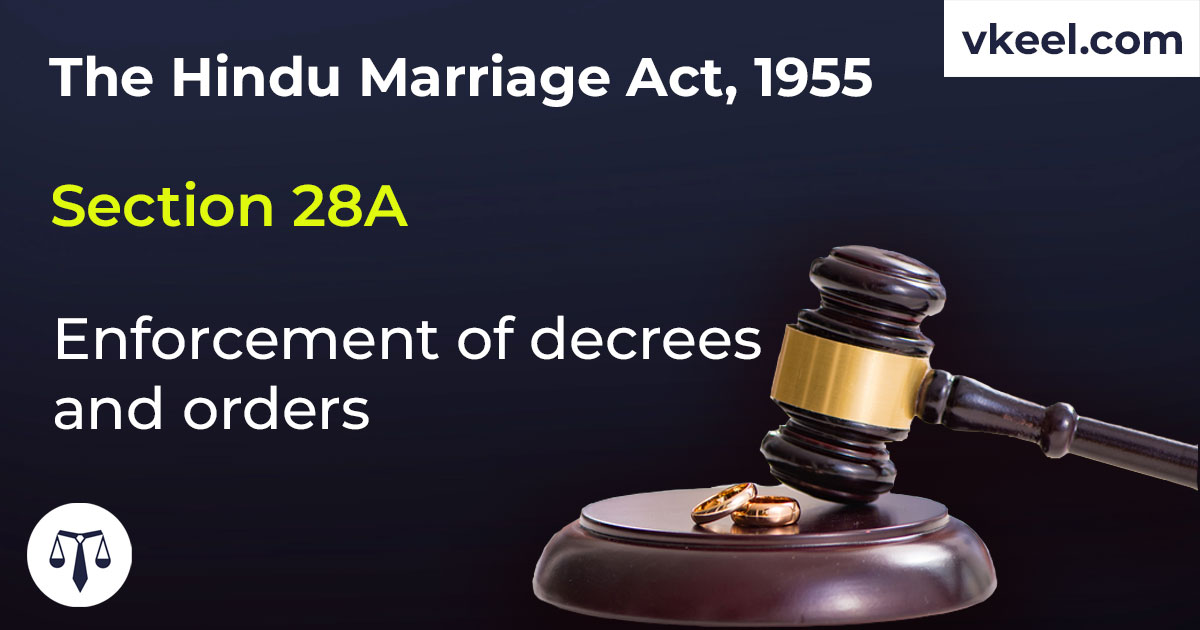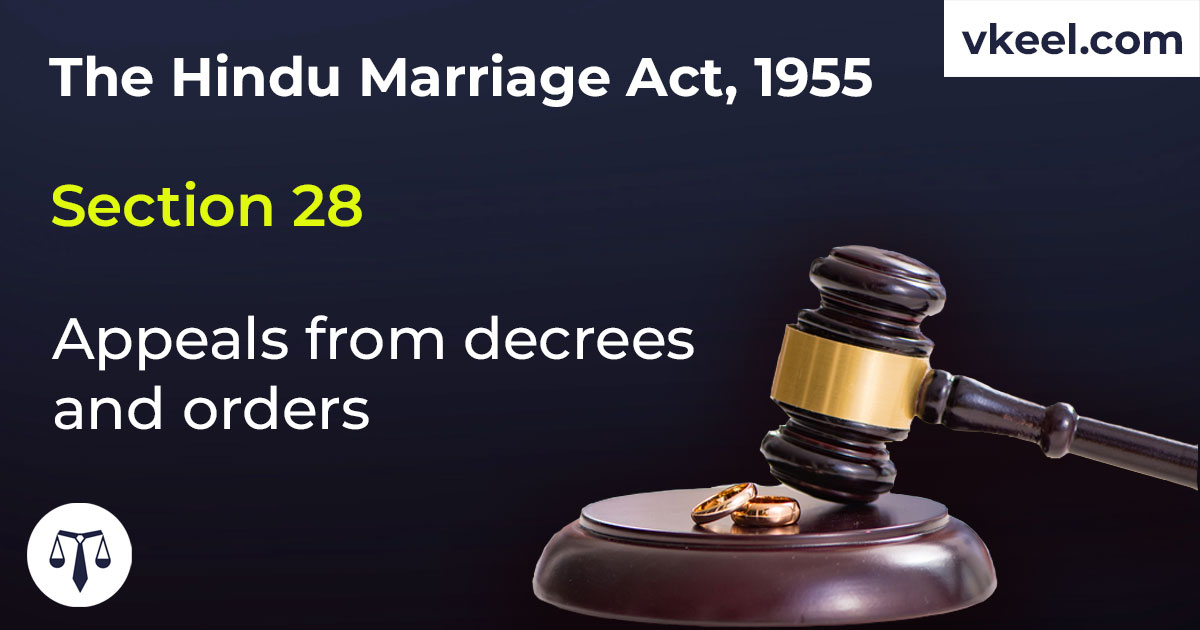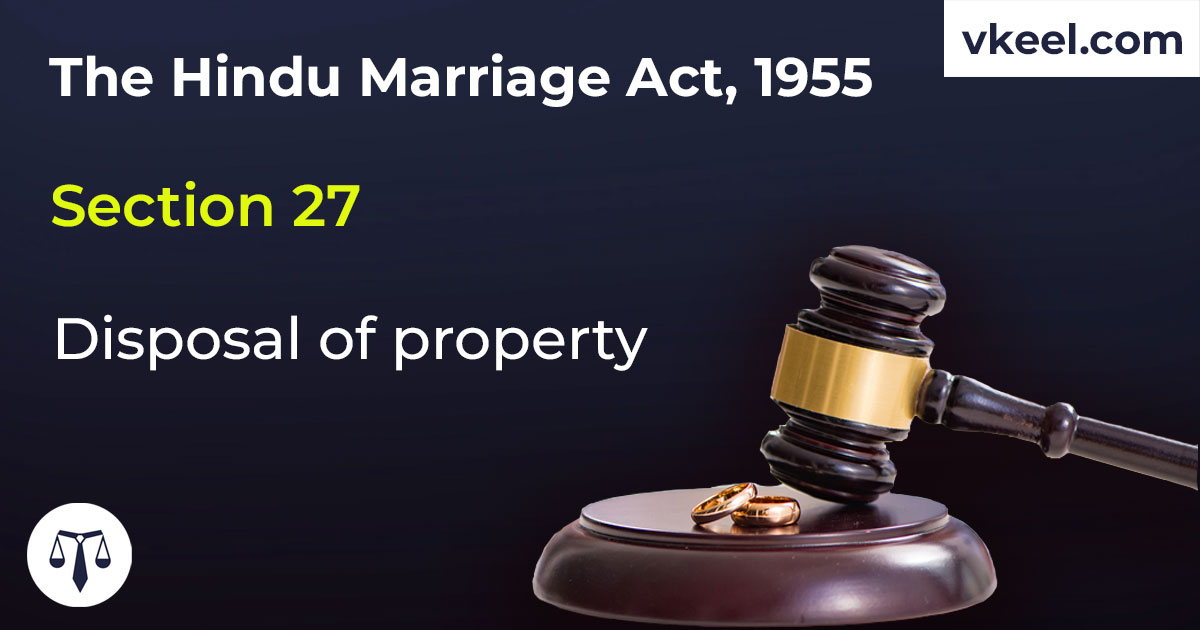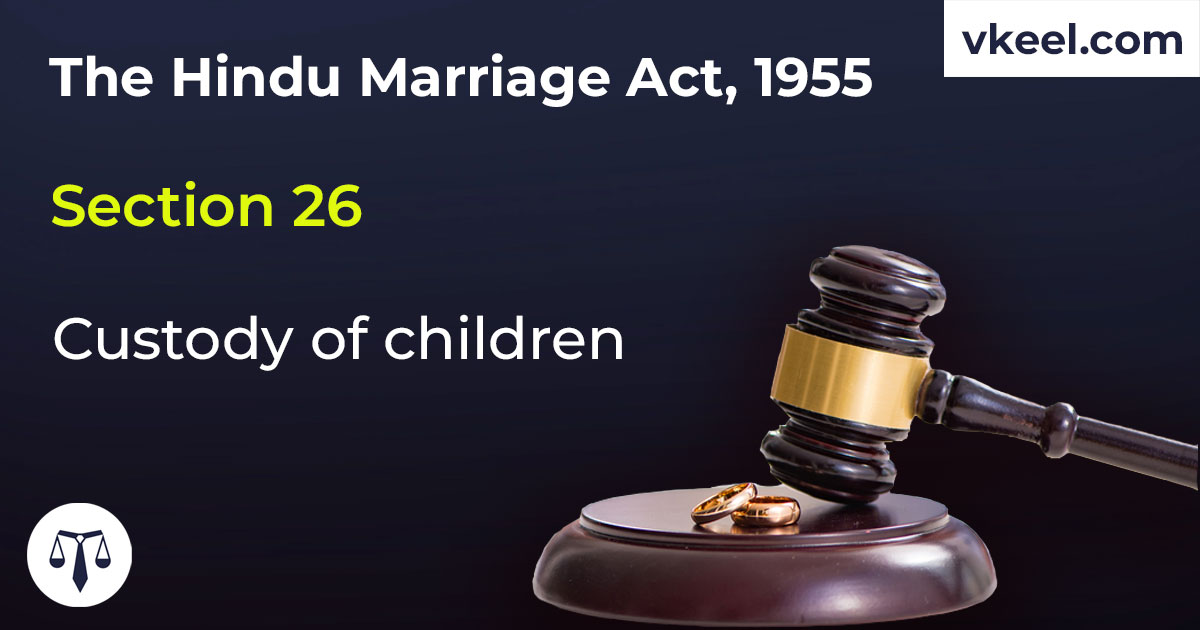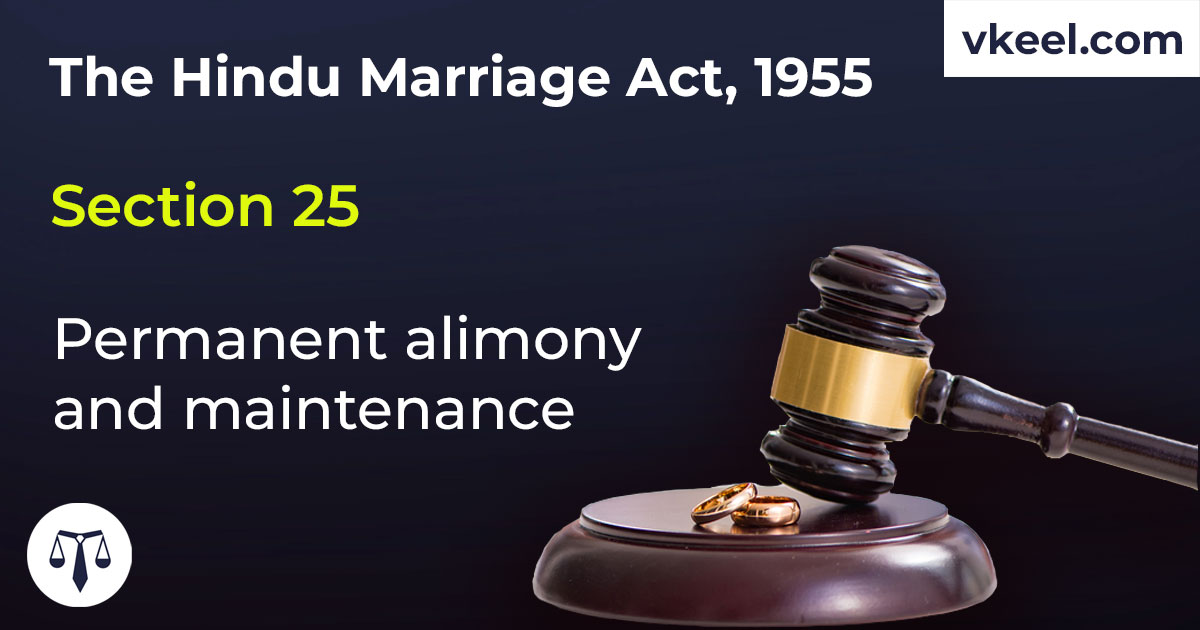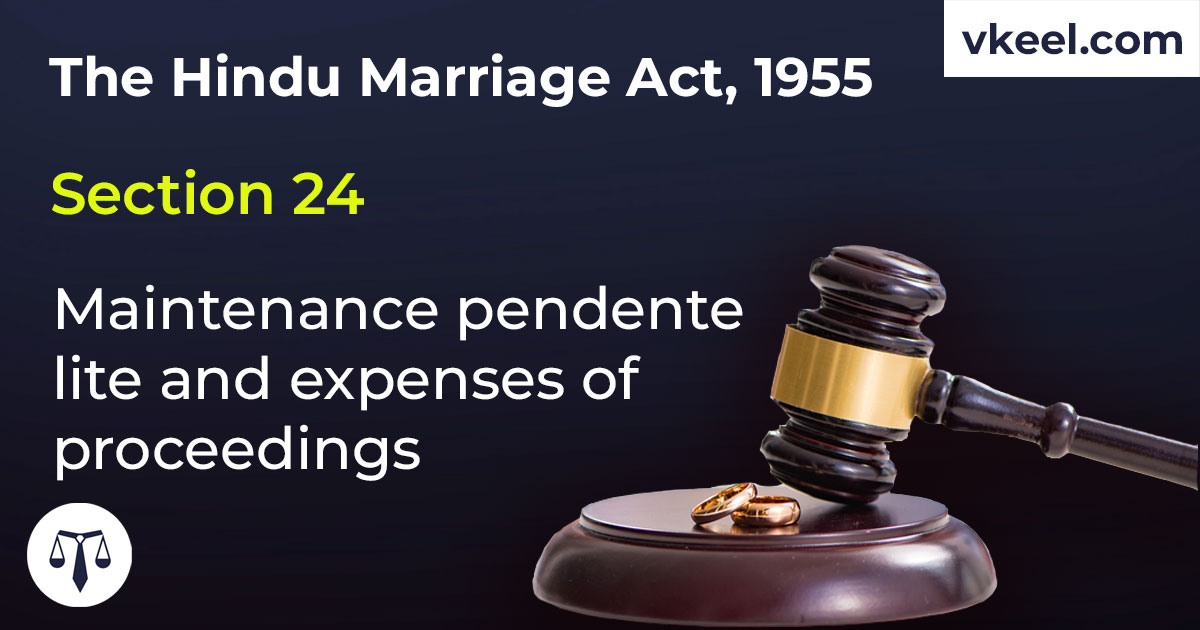Section 21A Hindu Marriage Act 1955 – Power to transfer petitions in certain cases
By Vkeel Team
Description
“Section 21A Hindu Marriage Act 1955”
1[(1) Where—
(a) a petition under this Act has been presented to a district court having jurisdiction by a party to a marriage praying for a decree for judicial separation under section 10 or for a decree of divorce under section 13, and
(b) another petition under this Act has been presented thereafter by the other party to the marriage praying for a decree for judicial separation under section 10 or for a decree of divorce under section 13 on any ground, whether in the same district court or in a different district court, in the same State or in a different State, the petitions shall be dealt with as specified in sub-section (2).
(2) In a case where sub-section (1) applies,
(a) if the petitions are presented to the same district court, both the petitions shall be tried and heard together by that district court;
(b) if the petitions are presented to different district courts, the petition presented later shall be transferred to the district court in which the earlier petition was presented and both the petitions shall be heard and disposed of together by the district court in which the earlier petition was presented.
(3) In a case where clause (b) of sub-section (2) applies, the court or the Government, as the case may be, competent under the Code of Civil Procedure, 1908 (5 of 1908), to transfer any suit or proceeding from the district court in which the later petition has been presented to the district court in which the earlier petition is pending, shall exercise its powers to transfer such later petition as if it had been empowered so to do under the said Code.
Benefits of Section 21A Hindu Marriage Act 1955 for Transferring Petitions
Section 21A Hindu Marriage Act 1955 is a beneficial provision for transferring petitions. This section allows a petition to be transferred from one court to another, if the petitioner is able to prove that the court in which the petition was originally filed is not the appropriate court to hear the case. This provision is beneficial for both parties involved in the case, as it allows them to have their case heard in the court that is most suitable for the case.
The transfer of a petition is beneficial for the petitioner, as it allows them to have their case heard in a court that is more familiar with the laws and regulations that are applicable to the case. This can be especially beneficial in cases where the laws and regulations are complex and require a court that is well-versed in the applicable laws. Additionally, the transfer of a petition can also be beneficial for the respondent, as it allows them to have their case heard in a court that is more familiar with the laws and regulations that are applicable to the case.
The transfer of a petition is also beneficial for the court, as it allows the court to hear a case that is more suitable for its jurisdiction. This can be beneficial for the court, as it allows the court to focus on cases that are more suitable for its jurisdiction, rather than having to deal with cases that are outside of its jurisdiction. Additionally, the transfer of a petition can also be beneficial for the parties involved in the case, as it allows them to have their case heard in a court that is more familiar with the laws and regulations that are applicable to the case.
Overall, the Section 21A Hindu Marriage Act 1955 is a beneficial provision for transferring petitions. This provision allows a petition to be transferred from one court to another, if the petitioner is able to prove that the court in which the petition was originally filed is not the appropriate court to hear the case. This provision is beneficial for both parties involved in the case, as it allows them to have their case heard in the court that is most suitable for the case. Additionally, the transfer of a petition is also beneficial for the court, as it allows the court to focus on cases that are more suitable for its jurisdiction.
1. Ins. by Act 68 of 1976, s. 14 (w.e.f. 27-5-1976)
Description Source: indiacode
Disclaimer:
The information provided in the article is for general informational purposes only, and is not intended to constitute legal advice or to be relied upon as a substitute for legal advice. Furthermore, any information contained in the article is not guaranteed to be current, complete or accurate. If you require legal advice or representation, you should contact an attorney or law firm directly. We are not responsible for any damages resulting from any reliance on the content of this website.

